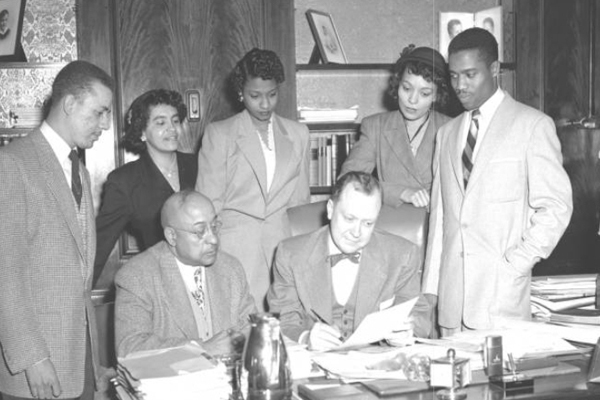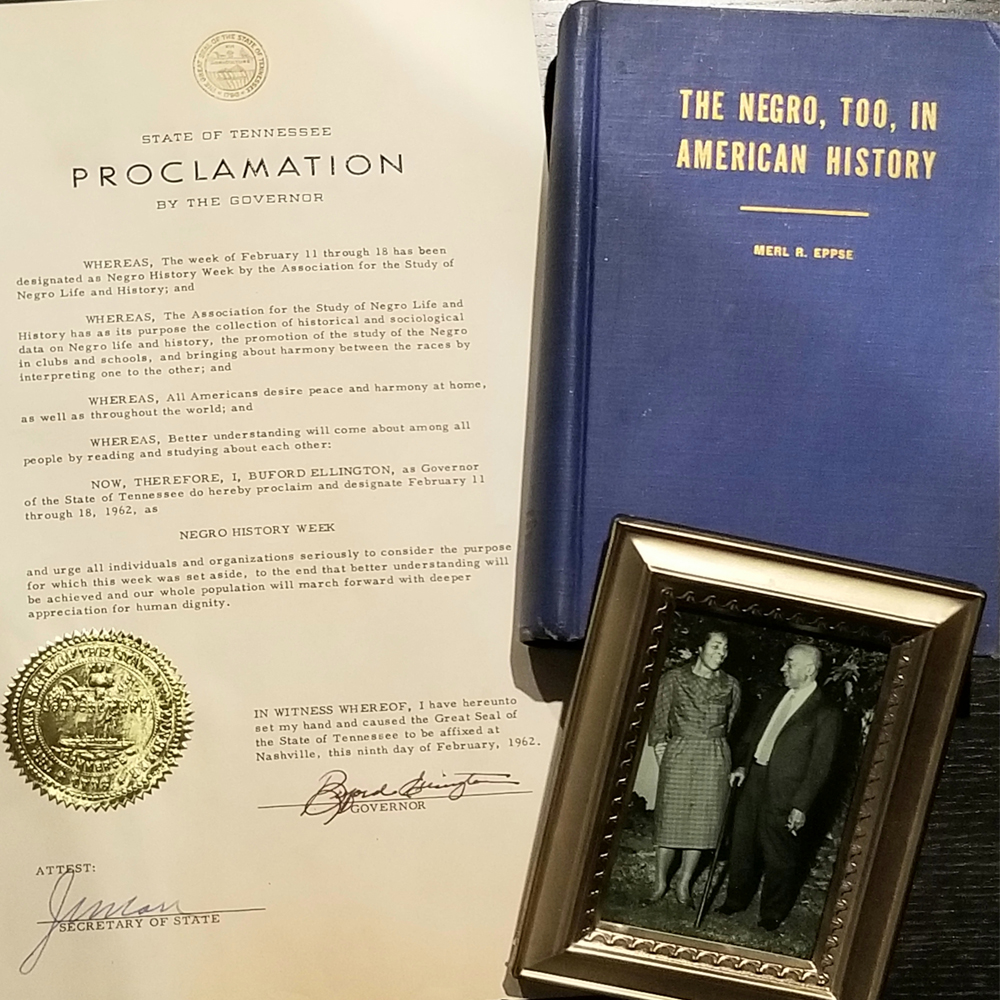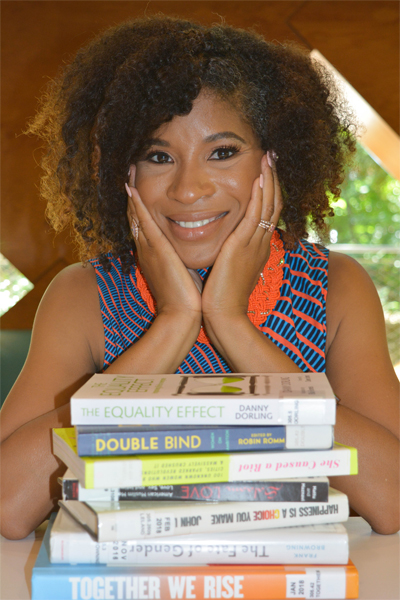
In the first of a series of guest columns dedicated to African American History Month, AstraZeneca’s diversity champion Dawn E Christian outlines why she believes Black History Month is Everybody’s History Month. She also reveals how her grandfather, Dr Merl R Eppse, played an instrumental role in the creation of Black History Week in the US.
For many millennials and younger generations, Black History Month seems to be something that has always been. This is not the case. African American History Month, also known as Black History Month, became federally recognised in the United States in 1976 (as reported). It was then that President Gerald Ford asked the public to “seize the opportunity to honour the too-often neglected accomplishments of Black Americans in every area of endeavour throughout our history”.
In 1926, the then called Negro History Week was widely recognised mainly by Historically Black Colleges and Universities (HBCUs) and Black community organisations. As word spread through the years leading up to and through the Civil Rights Movement in the 1960s, several other historians became champions and advocates working with their public officials to establish Black History Week. One of those historians was my grandfather, Dr Merl Eppse, a historian at Tennessee State Agricultural & Industrial University, now called Tennessee State University. It was here that he taught Wilma Rudolph and Althea Gibson (who both became international sports champions) and wrote Negro history books, including The Negro, Too, In America.
Due to segregation and the refusal of other major publishing outlets to publish a book praising the contributions of Blacks, Eppse self-published in 1949 by establishing the National Publication Company. In 1962, he was granted a proclamation declaring the week of February 11th through February 18th, Negro History Week by Governor Buford Ellington.

AFRICAN AMERICANS & THE VOTE
The theme of Black History Month 2020 is ‘African Americans and The Vote.’ This theme recognises and celebrates the 150th Anniversary of the ratification of the 15th Amendment. It was not until 1870 when the 15th Amendment was ratified providing that “the right to vote shall not be denied or abridged on the basis of race, colour or previous condition of servitude”. This year’s theme also recognises the centennial anniversary of the Women’s Suffrage Movement and the 19th Amendment granting women the right to vote.
The Suffrage Movement is a birth child of the Abolitionist Movement one of the leaders of that movement was Fredrick Douglass. Douglass also became instrumental in the Suffrage Movement when Elizabeth Cady Stanton, the White daughter of a slave owner who had become an abolitionist and women’s rights leader, became allies. This allyship and advocacy paved the way for the Voting Rights Act of 1965. Today, the Black community, along with other marginalised populations, continue to advocate for equity and access to voting rights.
THE BLACK EXPERIENCE
The real meaning behind Black History Month for many African Americans, such as myself, is the opportunity to tell it all. To tell it how it really was. Yes, I Too am the very fabric of our existence. I belong in the history books. I belong here on record as a contributor. Celebrated. Recognised. I, Too, am American history. I, Too, am the world’s history. Omission of or telling half-truths about the Black experience in America is an epidemic that has gone on for centuries into the new millennium.
McGraw-Hill published a book in 2015 that referred to the African slave as a worker (as reported); the term ‘worker’ is a gross mischaracterisation implying that there was paid employment and choice in the work and migration of a people who were living the very definition of oppression. Black History Month is necessary because the whole truth is necessary. Yes, slavery, Too, happened in American history. So, Too, did remarkable achievement that has changed the world! The blatant miseducation of what this country has been made up of and what it has become is why Black History Month is Everybody’s History Month.
BLACK LEGACY
Cultural heritage themed month celebrations remind, recognise and elevate the belongingness of all people. It is the ‘Too’ in my grandfather’s book title that reminds us that Black legacy belongs at the very core of what we call American and for that matter world history. What we look at as past is present. Every time you stop at a light, recognise Garrett Morgan. Before the ‘ring’ doorbell became mainstream, Marie Van Brittan Brown created a closed-circuit television security system. Have you or a family member ever needed a blood transfusion? Thank Charles Drew. Oncologist Jane Wright is responsible for major medical advancements in cancer treatment. She discovered hundreds of medicines with the potential to kill human tumours advancing cancer treatments, innovating cancer research and how doctors treat cancer today.
Each time you serve your child a peanut butter sandwich, give props to the chef, creator of the creamy goodness, George Washington Carver. When Americans made it to the moon, we can thank Katherine Johnson for her mathematical genius that calculated Neil Armstrong’s route to take that ‘One small step…’. Yes, Black people, Too, are American History. Black History, Too, is world history. We celebrate in one month the history that Black people have been making for centuries. Blacks have made major contributions to the way the world functions. The world’s advancement is not despite the Black contribution; it is because of it! That’s why Black History Month is Everybody’s History Month.

AUTHOR BIOG
Dawn E Christian, Associate Director of Learning Strategy at AstraZeneca, is an IDEAS (Inclusion, Diversity, Equity, Access and Social Consciousness) champion, practitioner, speaker and podcast contributor. Inspired by two decades of corporate experience, she is also the creator of social consciousness brand: I Belong Here.




































